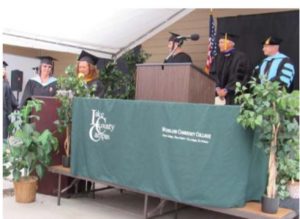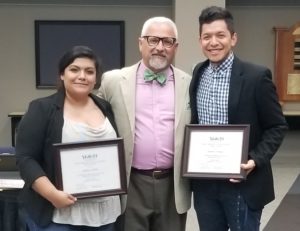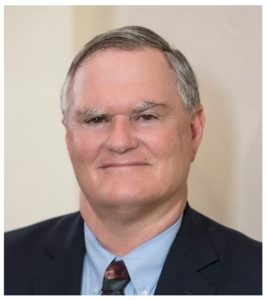2018 Lake County Campus Commencement
 Chancellor Houston attended the Lake County Campus commencement ceremony on Friday, May 25th. Chancellor Houston extended a welcome and congratulations to the graduates on behalf of the Governing Board and expressed how proud the trustees were to serve rural Lake County.
Chancellor Houston attended the Lake County Campus commencement ceremony on Friday, May 25th. Chancellor Houston extended a welcome and congratulations to the graduates on behalf of the Governing Board and expressed how proud the trustees were to serve rural Lake County.
Chancellor Houston shared how proud YCCD was of all the student present and stated that as graduates, they should be thankful for their family, friends, faculty and the staff of LCC for the support which has helped fulfill their educational goals.
Yuba College and Woodland Community College also held commencement ceremonies on May 25. Congratulations to all the YCCD 2018 Graduates!
Woodland Community College 2018 Tenure Celebration
 On May 10, 2018 a reception was held at Woodland Community College (WCC) to honor the newly tenured WCC Faculty member, Professor Manuela Dragos.
On May 10, 2018 a reception was held at Woodland Community College (WCC) to honor the newly tenured WCC Faculty member, Professor Manuela Dragos.
WCC Academic Senate President, Dr. Clark, introduced the newly tenured faculty member to the Board and included a brief background and educational achievements of the honoree.
Professor Dragos, at the reception prior to the Regular Board meeting, thanked the Trustees, Chancellor and WCC Faculty and Administration for their support.
2018/19 Student Trustees
Congratulations to Victoria Young from Woodland Community College and Michaela Christensen from Yuba College for being elected as the 2018-2019 Student Members of the YCCD Board of Trustees. Both students will take oath of office at the June 14 Board of Trustees meeting.
Victoria Young is a 20 year old sophomore representing Woodland Community College. Victoria graduated from Woodland High School and is current studying Sociology.
Michaela Christensen is 21 year old sophomore representing Yuba College. Michaela graduated from Marysville Charter Academy for the Arts and is currently studying Political Science.
Appreciation Presentation to Departing Student Trustees
 At the May 10 regular board meeting, outgoing Student Trustees Roberto Arteaga and Sandra Castillo received a certificate of appreciation from President Pasquale and the Board of Trustees for their work on the YCCD board for 2017-2018.
At the May 10 regular board meeting, outgoing Student Trustees Roberto Arteaga and Sandra Castillo received a certificate of appreciation from President Pasquale and the Board of Trustees for their work on the YCCD board for 2017-2018.
Sandra Castillo served two terms as the student representative for Woodland Community College and will continue to pursue her education at WCC. Roberto Arteaga served one term as the student representative for Yuba College and plans to transfer to UC Berkeley in the fall to continue his Political Science studies.
May Budget Revise
Governor Jerry Brown released the revisions to his 2018-19 State Budget on Friday, May 11. Although revenues and expenditures have both grown since January, and California is in the longest recovery ever, Governor Brown is once again very conservative in his budget proposal emphasizing a number of times the anticipation of an economic downturn.
For community colleges, the Governor’s May Revise contains updated proposals for the two major initiatives that were proposed with the January Budget proposal.
Funding Formula
The May Revise changes the proposed framework of the funding formula from a 50%-25%-25% breakdown to a 60%-20%-20% framework.
Framework:
60% would be a base funding allocation funded using a three-year FTES average. It also ends the practice of “summer shift”.
20% Equity Allocation based on the number of low income students defined as Pell Grant recipients, College Promise Grant recipients, and AB 540 student.
20% Student Success Allocation based on points for:
Completion of an ADT (4 points);
Completion of an associate’s degree or CCC baccalaureate degree (3 points);
Credit certificates of 16 units or more (2 points);
Completion of transfer-level English and transfer-level mathematics within the first year of enrollment (2 points)
Transfer to four-year institution (1.5 points);
Completion of CTE units (1 point);
Attainments of a regional living wage after one year of completion (1 point);
Pell Grant recipients would generate an additional set of points for meeting any of the above outcomes.
Hold Harmless:
Under the May Revise proposal, no district would receive less in both 2018-19 and 2019-20 than it received in 2017-18. Thereafter each district would be held harmless to its 2017-18 marginal rate of funding. Additionally, May Revisions proposes $104 million one-time Proposition 98 funding to provide one-time discretionary resources to districts whose year-over-year increase in general purpose apportionment funding would be less than the 2.17% COLA.
Noncredit:
Noncredit would continue to be funded as is, outside of the proposed funding formula.
Categorical Programs:
The May Revision proposes integrating the Student Success and Support Program, Student Equity Program, and the Student Success for Basic Skills Program into a block grant program. Beyond these three categorical programs, the proposal does not include the consolidation of any other programs.
Online College
The administration maintained its proposal to create a 115th online college and continues to propose $120 million to fund the online college. However, the Governor proposed a number of changes to the proposal from the initial January budget proposal.
Governance:
The Board of Governors would serve as the board of the online community college. The State Chancellor and the Board of Governors would choose a president of the college who would manage and control the operations of the college. The president would create an advisory council consisting of local trustees and employees of the college.
Collective Bargaining:
The online college would partner with an existing district for the purposes of establishing a collective bargaining agreement.
Student Success:
The online college would report on outcome measures similar to all other community colleges. The college would be required to share promising practices with the other traditional colleges.
Accreditation:
The president of the online community college would be responsible for commending the accreditation process upon enrollment of the college’s first cohort of students. While seeking accreditation, the Workforce Investment Board would certify that programs offered by the online college have job market value.
Other Adjustments
Apportionments:
Increases in $73.7 million in apportionments including an increase of $11.9 million to reflect COLA increase from 2.51% to 2.71%.
Financial Aid:
Increase of $7.8 million for the proposed Student Success Completion Grant to reflect an increase in the estimated number of students.
Financial Aid Technology:
An increase of $13.5 million one-time and $5 million ongoing to upgrade colleges’ financial aid management systems for more efficient processing.
Apprenticeships:
Increases of $4.8 million ongoing for increased reimbursements to K-12 and community college-sponsored apprenticeship programs and an increase of $5.9 million one-time backfill shortfalls in related and supplemental instruction hours in the prior years.
OER:
$6 million in one-time funding for open educational resources.
NextUp Program:
$5 million to expand NextUp Program which supports current and former foster youth.
K-12 Strong Workforce Program:
Increase of $2 million to support consortia administrative costs associated with the K-12 Strong Workforce Program.
Adult Education Block Grant:
$1 million in additional funding to reflect COLA increases from 2.51% to 2.71%.
Course Identification Numbering System:
Increase of $685,000 one-time.
Categorical COLA Adjustment:
Increase of $581,000 to address increased COLA for DSPS, EOPS, CalWORKS, and Child Care Tax Bailout program.
Deferred Maintenance:
Decrease of $131.7 million in one-time funding to reflect alternate spending priorities. The majority of the reduction is being directed for one-time funding for districts with declining enrollment that would have not reached their 2017-18 level of funding plus a 2.71% COLA in this budget year.
Proposition 51 Facilities
There were not any additional proposed for funding in the May Revise. The McCallum Group, Inc. continues to work in partnership with YCCD to get the WCC Performing Arts/Culinary capital project funded. It is anticipated that the Legislature will approve all of the facilities projects that were approved by the Board of Governors. The Governor will want to reduce the number approved or may use the facilities as a bargaining chip. The final negotiations will come down between the Governor and the Legislature.
Legislative Analyst Office Response
The Legislative Analyst’s Office released their initial response to the administration’s May Revise presenting estimated general fund revenues through 2021-22, noting slightly higher assumptions than those of the administration by $2.6 billion for 2016-17, 2017-18, and 2018-19 budget window. Additionally, the LAO noted a health wage growth that will drive personal income taxes higher. The LAO also anticipates a capital gains spike in 2017-18 and 2018-19. Most likely the administration’s lower revenue assumptions will be used as has been the case in past budgets.
The LAO estimates that there could be more general fund discretionary funding available, as they estimate that the Proposition 98 requirement could be lower, due to a difference they have with the administration in the estimate of K-12 pupil attendance which drives Proposition 98. The LAO also has higher property tax revenue estimates which would lower the amount of general fund resources that would need to go to Proposition 98. The McCallum Group anticipates that the Legislature will use the administration’s K-12 pupil attendance estimates so that Proposition 98 will not be driven down. However, they could use the LAO property tax estimates which would free up general fund resources for other priorities.
June Budget Agreement
On Friday, June 8, Governor Brown and Senate President pro Tempore Atkins, and Speaker Rendon announced a budget agreement. The budget agreement included two major components related to the California Community Colleges: the Funding Formula and the Online College.
Subsequent to the May Revision, the Department of Finance committed to two changes to the funding formula proposal. First, the proposal was amended to include a new “stability” provision, which specifies that, each year, a district would receive the greater of their past year or current year funding. Second, the proposal no longer includes any changes to existing provisions related to counts of summer enrollment; the current practice will continue.
Additional modifications include a three-year phase-in of the formula, with the model designed to provide 70 percent for the base allocation, 20 percent for the equity allocation, and 10 percent for the student success allocation in 2018-19, with a 65-20-15 split in 2019-20 and a 60-20-20 split in 2020-21. Use counts for all College Promise Grant recipients, rather than only College Promise Grant recipients age 25 and over, are to be used as part of the equity and student portion of the new funding formula. Additionally, an extension of the discretionary funds to cover a three-year period was agreed upon, which guarantees that all districts would receive funding increases at least equal to the cost-of-living adjustment for those three transition years.
The second major component in the budget agreement includes funding for the online community college as proposed by Governor Brown – $120 million in 2018-19 ($100 million one-time and $20 million ongoing). Building on the provisions included in the Governor’s May Revision above, the agreement includes additional language to specify alignment between the online college and other community colleges. The agreement also includes $25 million one-time monies to support the Online Education Initiative – which will help community colleges expand and improve online education.
District Newsletter
The District Newsletter is intended to share updates from various participatory decision-making groups, Board Policies and Administrative Procedures, updates from Cabinet, District Services departments, and excerpts from the Chancellor’s monthly Board Reports. You can access the May 2018 District Newsletter here: District Newsletter
YCCD Trustee Re-Elected to CCCT Board
 At the annual meeting of the California Community College Trustees (CCCT) Board in May, results for the 2018 CCCT election were announced. Yuba Community College District Trustee Brent Hastey was re-elected, with the second highest number of votes, to another two-year term. This will be Trustee Hastey’s third term as a member of the CCCT Board. In addition to Board member elections, the CCCT Trustees voted to elect the 2018-19 CCCT Board Officers.
At the annual meeting of the California Community College Trustees (CCCT) Board in May, results for the 2018 CCCT election were announced. Yuba Community College District Trustee Brent Hastey was re-elected, with the second highest number of votes, to another two-year term. This will be Trustee Hastey’s third term as a member of the CCCT Board. In addition to Board member elections, the CCCT Trustees voted to elect the 2018-19 CCCT Board Officers.
The CCCT Board consists of 21 member elected statewide by the 72 district governing boards and a student-member elected by the student trustees. The CCCT Board takes positions on and formulates education policy issues that come before the California Community Colleges Board of Governors, the State Legislature, and other relevant state-level boards and commissions. This policy board provides input to the League Board to advance the mission and effectively serve the organization’s member colleges.
The 2018 CEO Leadership Academy
Chancellor Houston joined subject matter experts and other experienced college CEO’s and presidents from around the state at the 2018 CEO Leadership Academy, hosted by the Community College League of California June 8 through June 10 at the Resort at Squaw Creek in Lake Tahoe.
 Board-level CEOs and college Presidents engaged in a series of professional growth themes facilitated by subject matter experts – including college CEOs and presidents from around the state. Topics included a conversation on CEO/Trustee and CEO/Board relationships, a discussion on the CEOs role as friend and fund raiser of their colleges, a focus on advocacy and shaping policy and budget, and a guided discussion on equity and Guided Pathways and several California-specific discussions about Development Education reform.
Board-level CEOs and college Presidents engaged in a series of professional growth themes facilitated by subject matter experts – including college CEOs and presidents from around the state. Topics included a conversation on CEO/Trustee and CEO/Board relationships, a discussion on the CEOs role as friend and fund raiser of their colleges, a focus on advocacy and shaping policy and budget, and a guided discussion on equity and Guided Pathways and several California-specific discussions about Development Education reform.
As part of the League’s CEO Pathways Committee, Chancellor Houston continues to play an essential role in shepherding CEO’s and Trustees from around the state in continued development of this program to support new California College Presidents, Superintendents/Presidents and Chancellors.
2018 Legislative Updates
Bills of Interest
AB 1805 (Irwin)
This bill passed out of Assembly Education and will go to Assembly Appropriations. The bill would require a community college to inform students of their rights to access transfer-level coursework and of the multiple measures placement policies developed by the community college, as provided. The bill would require a community college to annually report to the Office of the Chancellor of the California Community Colleges the community college’s placement policies and placement results, and would require a community college to publicly post its placement results.
AB 1887 (Medina)
This bill passed Senate Education and will go to Senate Appropriations. The bill would authorize any student attending a campus of the California Community Colleges, the California State University, or the University of California who is exempt from paying nonresident tuition to a specified statute to serve on any board or commission established pursuant to the portion of the Education Code relating to higher education and that includes members who are students.
AB 1935 (Irwin)
This bill passed the Assembly and will go to the Senate. The measure would authorize community colleges to collect noncredit apportionment for supervised tutoring.
AB 2449 (Arambula)
This bill passed Senate Education and will go to Senate Appropriations. The bill would provide for the commencement of terms of office relating to the election of members of governing boards of school districts and governing boards of community college districts on the 2nd Friday in December.
AB 2477 (Rubio)
This bill passed the Assembly and will go to the Senate. The bill would require the California Community Colleges and the California State University, and request the University of California, to designate a Dream Resource Liaison on each of their respective campuses to assist students meeting specified requirements, including undocumented students, by streamlining access to all available financial aid and academic opportunities for those students.
AB 2891 (Holden)
This bill would authorize community college districts to enter into dual enrollment agreements with charter schools. The bill was placed in the Assembly Appropriations suspense file and will be heard with the other suspense items on May 25th. The Appropriations analysis indicated that the fiscal effect could be in the high hundreds of thousands annually to extend courses to chart school students. The analysis also noted that this could be offset to the extent that students do not need to enter into remedial courses when moving onto college.
AB 2970 (Cooper)
The bill passed the Assembly and will go to the Senate. The bill would require that the date, time, and place of the employee orientation be confidential and not be shared with anyone other than employees or the exclusive representative.
AB 2990 (Low)
This bill passed out of Senate Education and will go to Senate Appropriations. The bill would require each campus of the California Community Colleges and the California State University, and each campus of the University of California if so directed by the UC Regents, to place a link on the campus website describing the availability of an exemption from mandatory tuition and systemwide fees for an eligible survivor of a state or local public agency firefighter or law enforcement officer who died in the line of duty.
AB 3101 (Carillo)
The bill passed the Assembly and Senate Education and will go to Senate Appropriations. The bill would require the Board of Governors, on or before July 31, 2019, to revise the CCCApply application and enrollment process so that only data that is required by the federal government, or that is otherwise necessary, as determined by the board, is collected during the process. The bill would require the board, to the extent that data can be collected from the student at a later time, to delay the collection of that data until after the student is enrolled.
AB 3153 (Levine)
The bill passed the Assembly and will go to the Senate. The bill would make students who are eligible to receive Cal Grant A or Cal Grant B award eligible to receive a Summer Cal Grant award, in addition to receiving a Cal Grant A award or Cal Grant B award, for a total of two (2) summer terms of up to nine (9) units of enrollment, or the quarter equivalent, for purposes of pursuing timely completion of a baccalaureate degree at a public postsecondary educational institution. The bill would provide that Summer Cal Grant awards shall not be subject to or count against the four (4) years of full-time attendance eligibility limitation that applies for purposes of Cal Grant A award and Cal Grant B award renewals.
SB 968 (Pan)
The bill passed the Senate and will go to the Assembly. The bill would require the Trustees of the California State University, the governing board of each community college district, and request the Regents of the University of California, to hire one-full time equivalent mental health counselor per 1,500 students at each of their respective campuses to the fullest extent consistent with state and federal law.
Chancellor’s Calendar

3 – CISO Academy Leadership Session
5 – Chancellor’s Cabinet
5 – District Consultation Council (DC3)
6 & 7 – YCCD Leadership Summit
8 thru 10 – CCLC CEO Academy
13 – Meetings of the Facilities/Audit and Finance Committees
13 thru 15 – ACCCA Board Retreat
14 – Meeting of the Governing Board
18 – Meeting with Trustee Pasquale
19 – Chancellor’s Cabinet
20 – Meeting with CSU Chico President
21 thru 25 – Attend Brandman University’s Ed.D. Cohort
26 – Chancellor’s Cabinet
26 – Tentative Citizens Bond Oversight Committee
27 – Meeting with YC President
27 – Meeting with Trustee Teagarden

